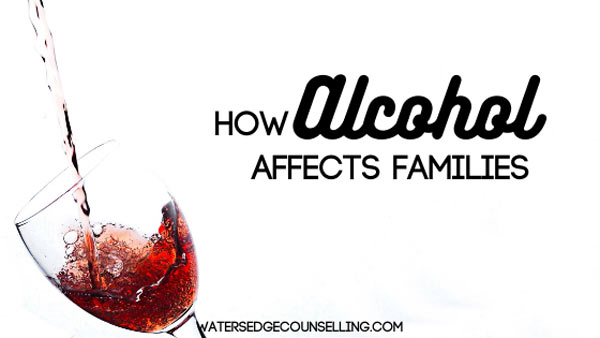
Alcohol doesn’t just impact the person drinking– it has ripple effects on everyone around them. And this includes their family.
Here’s an alarming statistic: according to the 2019 National Survey on Drug Use and Health (NSDUH), around 14.5 million people ages 12 and older had alcohol use disorder or AUD. AUD is defined as “a chronic relapsing brain disorder characterized by an impaired ability to stop or control alcohol use despite adverse social, occupational, or health consequences.”
From 2006 to 2010, excessive drinking was responsible for 1 in 10 deaths among adults aged 20 to 64. And while alcoholism has a massive impact on the person concerned, many people overlook AUD’s significant impact on the family.
Effects of Alcoholism on Families
Alcohol use disorder is not referred to as a “family disease” for nothing. If truth be told, the emotional side effects of AUD are felt by spouses, children, other immediate family members, and even friends.
The attitudes, behaviors, and lives of alcoholics and their family and friends can change forever as a consequence of their addiction. Often, the people involved can experience depression, anxiety, and shame.
Those living in a home with an alcoholic often have to put up with tension, disruptive behaviors, and strained relationships.
Alcohol Use Disorder and Relationships
A study conducted by the University of Buffalo’s Clinical and Research Institute on Addiction revealed that many married couples drink alcohol. Moderate alcohol use has very minimal impact. However, heavy drinking that leads to alcohol abuse disorder can disrupt relationships in a lot of ways, including:
- Unhappiness and lower satisfaction with the relationship
- Domestic violence (physical, sexual, and verbal)
- Psychological or emotional abuse (i.e., intimidation, humiliation, manipulation, abuse, insulting comments)
- Worsening of existing stressors (i.e., childcare responsibilities or financial woes)
- Separation and divorce
Alcohol Use Disorder and Child Development
Children that grow up in a household with AUD can suffer complicated and lifelong effects. It can change not just their relationships with others and their loved ones – it can also change their perception of themselves.
Moreover, children raised by alcoholic parents or caregivers may also experience complex and conflicting emotions such as:
- Embarrassment: Believing alcoholism is an embarrassing secret they should keep from others. The feeling of shame may also cause them to feel isolated.
- Guilt: Blaming themselves for the addiction.
- Anger: Feeling irritated and agitated by a parent with AUD and other family members that enable the addiction.
- Anxiety: Worrying about the family member becoming injured, violent, or sick.
- Depression: Feeling hopeless, frustrated, and lonely about the situation at home.
- Detachment: Feeling dissociative or emotionally numb to cope with stress and anxiety.
- Confusion: Feeling the lack of stability in a home that is unpredictable and inconsistent.
- Distrust: Having a feeling they cannot rely on anybody because of traumatic experiences dealing with caregivers or parents with AUD.
Apart from the emotional distress, other red flags can indicate a child is going through a stressful situation at home because of AUD. Teachers, relatives, and other adults may also observe the following personality and behavior changes:
- Isolation: Withdrawing from friends and classmates.
- Trouble at school: Missing school, being disruptive, or failing classes.
- Low self-esteem: Sensitivity to criticisms and feeling inadequate.
- Impulsive behaviors or risk-taking: Fighting, stealing or experimenting with drugs and alcohol.
- Seeking approval: Constantly looking for praise, approval, and attention.
- Fear of abandonment: Exhibiting extreme dependency on other people.
- Distrust of authority figures: Developing suspicions about the intentions of law enforcement officers, counselors, teachers, and other adults.
Many children will also have a hard time articulating the impact addiction has on them and their lives. As a result, they develop different ways of coping with the situation. For instance, some can act as parental figures to their siblings and friends. Unfortunately, any unresolved feelings from childhood can manifest even in adulthood.
Conclusion
While family members want the person with the alcohol addiction to seek treatment, it is up to them to take that step. However, it does not mean they should just wait and watch. Nowadays, countless support groups specifically help families that go through the same situation. Together, they can address their emotional needs and learn how they can best support the affected individual throughout their recovery.
Do you struggle to get through the day without a drink? Is your partner’s drinking habits harming you or your family? Contact Colleen on 0434 337 245 or Duncan on 0434 331 243 for a FREE 10 minute consultation on how we can best help you or book online now.
Leave a Reply